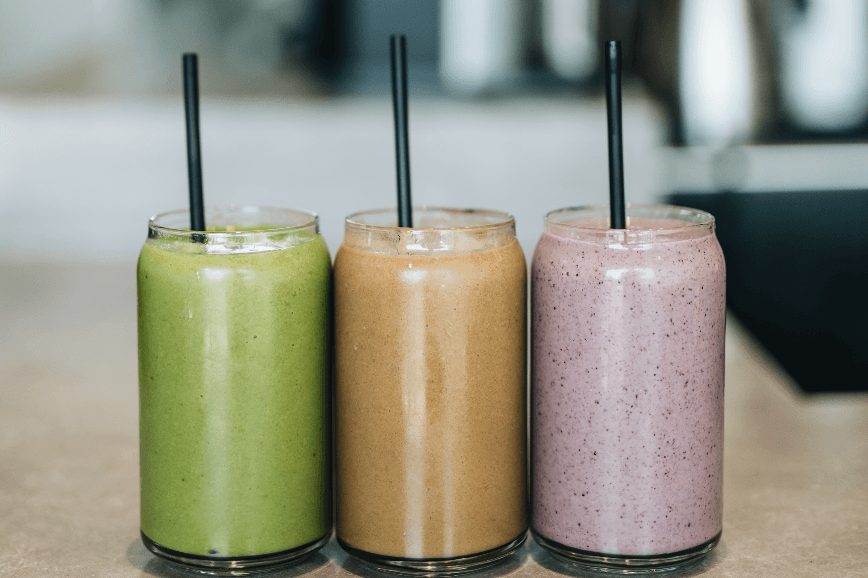
Collagen Protein vs. Whey Protein - What's the difference in 2020?
Lexie Sandvig
almost 3 years ago
COLLAGEN vs. WHEY PROTEIN There are so many types of protein on the market. How is anyone supposed to know which one is best? Whey protein has been around for a good long while and is probably what you’ve seen the most of on store shelves. But, there’s a new type of protein you may have noticed lately called collagen. What’s the difference of collagen vs whey protein? Is one better than the other? Do you need it? Let’s break the two down and see which protein is best for you.
WHEY Let’s start with whey. Whey protein is by and large the most abundant source of protein on the market. Most people turn to whey for the following reasons: gaining muscle, faster recovery, and reaching an optimal protein intake (.8g - 1g / lb of body weight).
Muscle Gain Whey protein contains leucine which is a branch-chain amino acid (BCAA) and has been scientifically proven to support muscle growth. Your typical 20-gram scoop of whey protein contains anywhere from 2-2.5 grams of leucine. That’s more leucine per gram than an egg, milk, or the same size serving of soy protein.
Recover Faster Your body (specifically your muscles) absorb leucine quicker than other BCAAs. This makes leucine a great way to promote recovery after a workout. Bigger, stronger muscles come from proper nourishment.
Getting Enough Protein Most people don’t have enough protein in their diet. When you break it down to a macronutrient level, most people (especially in the US) have very carb-heavy diets and lack proper protein intake. For people that measure their macros or for people just looking to get extra protein in their diets, a scoop of protein can quickly add 20 grams to help you reach your goal. Since whey is the most abundant protein supplement on the market a large portion of the population turn to it to meet their needs.
Known Issues Whey protein is derived from cow's milk. If you have any dairy issues or are lactose intolerant you might experience symptoms like bloating, gas, or stomach cramps due to ingesting whey protein.
COLLAGEN Collagen is traditionally known for helping strengthen your hair, skin, & nails, but it has many other benefits including gastrointestinal health, joint lubrication, shortened recovery periods, and everything mentioned above with whey protein.
Hair, Skin, & Nails As our bodies age past 25, they naturally slow down collagen and elastin production. This affects the smoothness of your skin and slows down hair and nail growth. By utilizing the amino acids glycine and proline in collagen you’re aiding your body's production of its own collagen and elastin which restores and hydrates your skin. Regularly supplementing these two amino acids will increase your skin elasticity and smoothness, reduce wrinkles, and boost hair and nail growth.
Gastrointestinal Health & Digestion When assessing collagen vs. whey, it helps to recognize that collagen restores your intestinal lining by sealing it with the amino acid, glutamine. This prevents toxins and other partially digested particles from escaping and entering your bloodstream. Collagen is extremely beneficial to people dealing with gastrointestinal inflammation and autoimmune disorders.
Joint Lubrication The amino, glycine, in collagen increases synovial fluid production which is proven to lubricate your joints which increases mobility. Glycine also triggers your body to start the sleep cycle, which makes collagen better for recovery as well. But collagen doesn’t stop there. With continued daily use, alongside endurance and strength training, joint improvements continue to build so that your body can resist natural wear and tear over time.
Recover Faster You can get back to activity faster with proline and lysine in collagen’s amino profile. The proline in collagen aids in your athletic recovery by strengthening your tendons and ligaments (connective tissue) which increases your muscle strength and lean body mass. Lysine naturally has a higher nitrogen content than whey or other types of protein. This helps maintain a positive nitrogen balance within the body to aid in muscular growth after periods of intense muscle exertion.
Known issues The two best sources for collagen are bovine and shellfish, so if you have a shellfish allergy you may want to avoid any blends containing it.
COLLAGEN VS WHEY PROTEIN.... the summary. Whey protein, like Xwerks Grow is sufficient and dominates the protein market. But with all the research coming out, it’s history might be the only thing that keeps it at the top. With collagen containing all of the recovery benefits of whey, plus the added gut health benefits it’s in a prime position to take a big bite out of whey and potentially take over the space.
If you’re in the market for protein, do your research. Not all collagen is created equal because not all of its sources are equal. Lots of collagen comes from cows so you’re going to want to look for a pasture-raised grass-fed source.